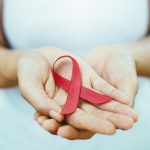Human papillomavirus and HPV vaccine
What is human papillomavirus (HPV)?
Human papillomavirus (HPV) is a very common virus that is spread through sexual contact. Most people do not experience any symptoms of HPV and the virus often goes away by itself. But in some people, HPV causes genital warts or cancer.
HPV can affect any male or female who is sexually active, even if they only experience sexual contact once. Most people have HPV at some time in their lives.
There are many different types of HPV virus some are considered ‘low risk’ while others are ‘high risk’. Low-risk HPV types can cause genital warts and do not cause cancer.
High-risk types of HPV can cause cervical cancer or other cancers, including:
- anal cancer
- vaginal cancer
- cancer of the vulva
- cancer of the penis
- oropharyngeal cancers (cancers of the back of the throat, including the base of the tongue and tonsils)
What are the symptoms of HPV?
Most people infected with HPV have no symptoms. Some types of HPV can cause genital warts. These are small growths on or around the genitals and anus that may be:
- flat or raised
- single or multiple
- clustered
If you are infected with a type of HPV that causes cancer, the virus can cause changes to the cervical cells, which can eventually lead to cancer. There are usually no symptoms, but some people may notice:
- bleeding after sex
- pain during sex
- abnormal periods, unusual vaginal bleeding or unusual discharge
- pain in the pelvis
How does HPV spread?
HPV is spread through genital to skin contact during sexual activity through tiny breaks in the skin. The virus can live in the skin for many years. It may spread to another person even if there are no visible genital warts.
How is HPV diagnosed?
Diagnosis of HPV is usually made by checking symptoms, examination and, for women, doing a Cervical Screening Test. This test, which replaced the Pap smear, can detect high-risk HPV. There is no blood test to detect HPV.
Anyone participating in Cervical Screening also has the option to self-collect their own sample. If you would like to collect your own sample, speak to your healthcare provider. More information on self-collection for the Cervical Screening Test is available from the Department of Health and Aged Care.
How is HPV treated?
There is no treatment for HPV. The body usually gets rid of the virus by itself over time, which can take about a year. You will probably need to be re-tested to see if the virus has gone.
If you develop genital warts, your doctor may ‘freeze’ them off (cryotherapy) or suggest an ointment or cream. Sometimes genital warts need to be removed in hospital.
Cervical and other cancers need to be treated by specialists. Your doctor will advise you on the treatments you need.
Can HPV be prevented?
Using condoms offers some protection, but you can still catch HPV because condoms do not cover the whole genital area.
The best way to protect yourself and others against HPV is to be vaccinated. In women, the vaccine protects against 9 types of HPV that cause cervical cancer it does not protect against all types of HPV. It also helps protect against genital warts and some types of vaginal, vulval and anal cancers.
In men, HPV vaccination helps protect against genital warts and some anal, penile and throat cancers.
The HPV vaccine is recommended for:
- younger people aged 9 to 25 years
- people who have weakened immune systems
- men who have sex with men
The best time to be immunised is before you are sexually active. Boys and girls aged 12 to 13 receive the free HPV vaccine at school on the National Immunisation Program Schedule. It is also available for free to anyone under 26 if they were not vaccinated at school.
You can still be vaccinated if you have been infected with a type of HPV in the past.
Women who have received the HPV vaccine should still have regular cervical screening tests, since the vaccine does not cover all types of HPV. Women aged 25 to 70 need to be screened every 5 years, or 2 years after their last Pap smear.
Who should not get the HPV vaccine?
The vaccine is not suitable for people with certain bleeding disorders or a yeast allergy, or for pregnant women (although research shows there will be no significant effect on you or your baby if you have the vaccine and later find out you are pregnant). Ask your doctor if you’re not sure whether you should be vaccinated against HPV.
HPV vaccine
Vaccination is your best protection against HPV. This table explains how the vaccine is given, who should get it, and whether it is on the National Immunisation Program Schedule. Some diseases can be prevented with different vaccines, so talk to your doctor about which one is appropriate for you.
| What age is it recommended? | 9 to 25 years. |
| How many doses are required? | One dose. 3 doses if there are problems with your immune system. |
| How is it administered? | Injection. |
| Is it free? | Free for children aged approximately 12 to 13 years (at school). A free catch-up program is available for under-26 year olds if they missed the vaccine program at school. For everyone else, there is a cost for this vaccine. Find out more on the Department of Health website and the National Immunisation Program Schedule, and ask your doctor if you are eligible for additional free vaccines based on your situation or location. |
| Common side effects | The vaccine is very safe. Common side effects include pain, redness and swelling where the needle went in, headache, tiredness, body aches and fever. |


